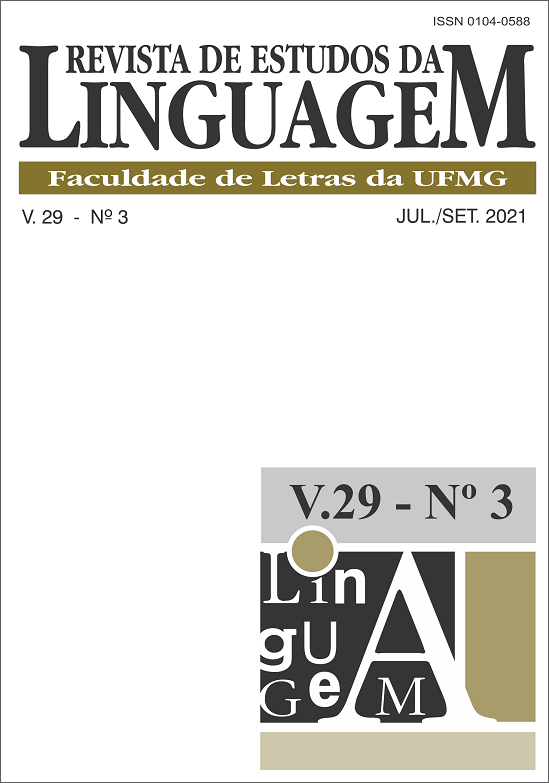Formalidade e pronomes de segunda pessoa do singular no português gaúcho
dados de interpretação
DOI:
https://doi.org/10.17851/2237-2083.29.3.1651-1684Palavras-chave:
pronomes de segunda pessoa, formalidade, português brasileiro, português gaúcho, sociolinguísticaResumo
Na variedade do português falado no estado do Rio Grande do Sul, o pronome de segunda pessoa do singular “tu” ocorre com maior frequência do que o pronome inovador “você”, sendo o “tu” considerado marca da identidade local. No entanto, vem geralmente acompanhado de verbos com a flexão de terceira pessoa, tendo sido sugerido que a utilização da flexão canónica está reservada a momentos de maior formalidade. Este estudo propôs-se a obter dados empíricos acerca da perceção de formalidade dos diferentes pronomes de segunda pessoa do português gaúcho pelos seus falantes nativos, além de estabelecer se consideram o pronome “tu” parte do seu jeito de falar. Uma tarefa de seleção de vocábulos, além de uma tarefa de julgamento de formalidade com uma escala de cinco pontos foram realizadas com 233 participantes. Os resultados confirmam a visão de que o pronome “tu” faz parte da identidade dos falantes e sugerem um sistema triádico, composto, em ordem de formalidade por “tu”, “você” e “o senhor”, acompanhados de morfologia flexional de terceira pessoa, enquanto “tu” com a flexão canónica compete com “você” pela posição intermédia. Dentre os fatores sociolinguísticos que influenciam os julgamentos, somente a idade foi relevante, com os participantes acima de 50 anos de idade tendendo a considerar as frases com “tu” mais informais, independentemente da flexão a ele associada.





